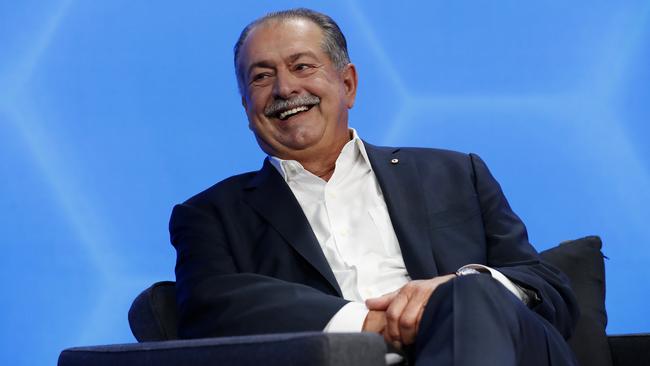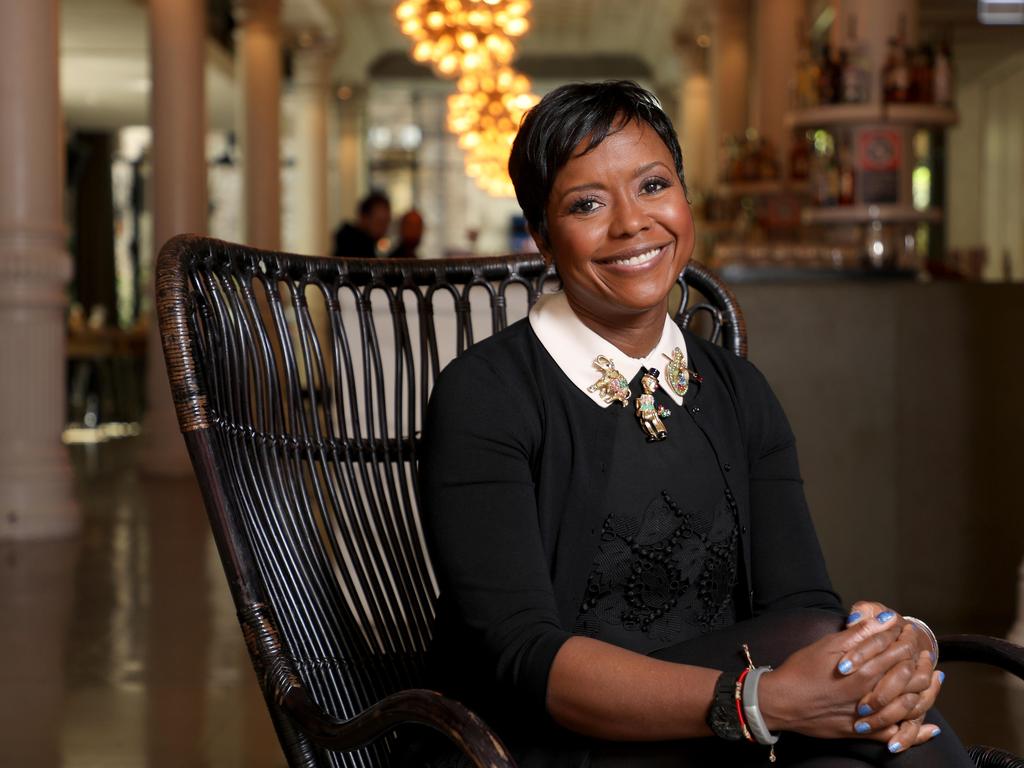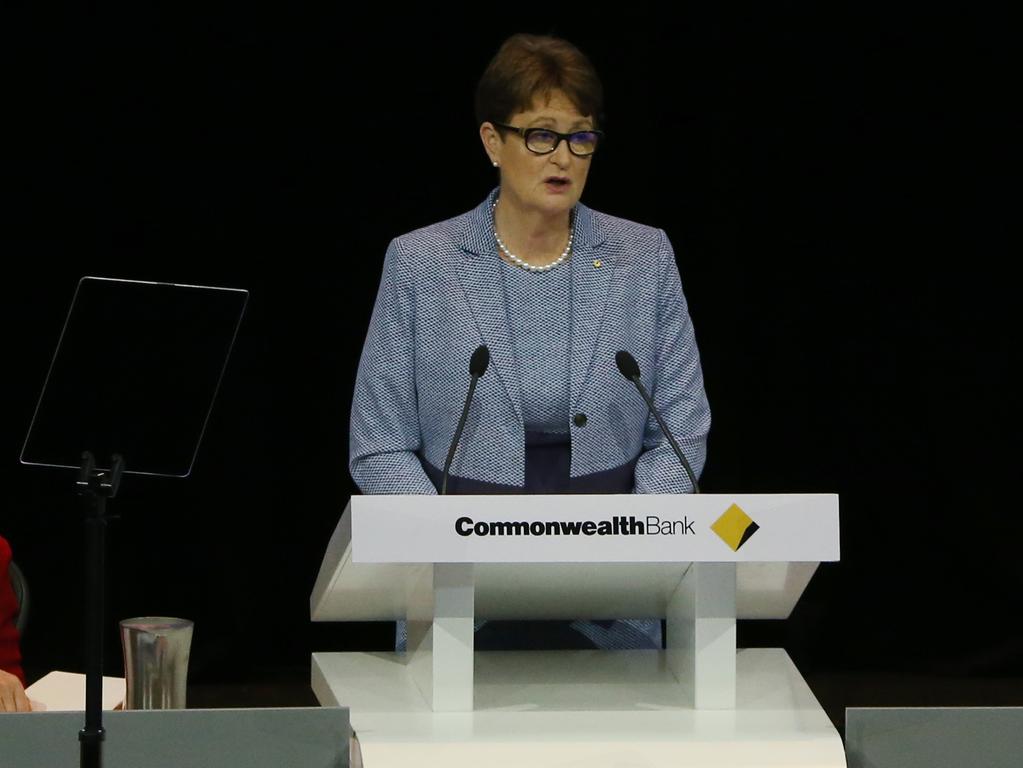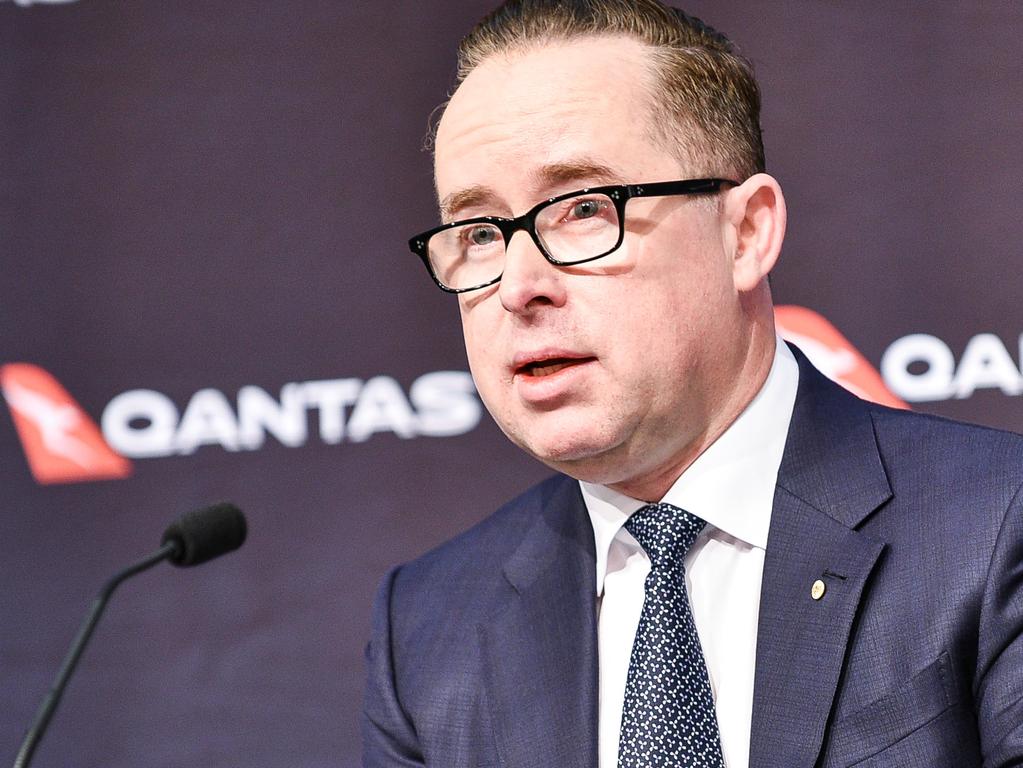Keep economic and security relationship with China separate, says Andrew Liveris
Don’t confuse economic interests of a nation with the security interests of a nation, says Andrew Liveris.

Australia must avoid further entrenching its position with China and should separate its economic and security relationships with the Asian superpower to avoid trouble, senior business leaders have warned.
China has responded to Treasurer Josh Frydenberg’s recent olive branch with a list of grievances and threats, describing the relationship as one with “serious difficulties”. Prime Minister Scott Morrison subsequently vowed Australia would always defend its interests and would not back down, with Beijing’s increasing aggression due to “Australia being Australia”.
NAB chairman Phil Chronican, a member of the Morrison government’s China relations advisory board, said the relationship would survive current ructions but cautioned against the two nations further bunkering down on their respective positions.
“There are issues, they are real, and they are getting in the way,” Mr Chronican told The Australian’s Strategic Forum on Thursday.
“We’re not going to solve those issues by taking more entrenched positions on each side. Even with some of our closest allies, we have disputes from time to time. What’s unusual is the number we’ve got at the moment.”
CBA chairman Catherine Livingstone said there was a broader issue: the need to diversify Australia’s economy.
“It’s not a question of diversifying away (from China); it’s a question of broadening our trade relationships, because trade is so important to us,” Ms Livingstone told the forum. “Australia has demonstrated flexibility and the ability to respond to changes in access to the market but underneath all of that we must focus on diversifying our economy.”
Prominent director Andrew Liveris — a board member of Worley, Saudi Aramco and IBM — said Canberra needed to be clear about its relationship with an ascendant China. “The most important conversation to be had is how to ensure the economic interests of a nation are not confused with the security interests of a nation — making sure one doesn’t mix them up by making decisions on how to deal with the new reality of the new China,” Mr Liveris told the Strategic Forum.
“China will be a big consumer of the goods that Australia makes, and we have got to keep developing that relationship for our own mercantile benefit and, frankly, for theirs.
“When we confuse mercantile interest with what are issues of principle, that is when we will get into trouble.”
Australia’s Treasurer told the Forum on Wednesday that the government was ready to re-engage in “respectful and beneficial” dialogue with Beijing amid escalating trade pressure.
Mr Liveris, who briefly served on US President Donald Trump’s manufacturing advisory council, said the Biden election win could allow Australia the chance to re-tilt its relationship with China, pulling back from a reliance on US-driven solutions.
“We must drive a resilience approach where we build more markets, more resilient supply chains and a partnership built on candour. As past chair of the US China Business Council, I suggest we listen carefully to China’s needs and develop Australian solutions, not solutions driven by the US,” Mr Liveris said.
“The Biden election may provide an opportunity for a reset based on candour and pragmatism, not ideology. Ultimately, we need to be proactive and engage the arrival of what is shaping up to be the Chinese century.”
Victorian timber was last week added to a list of Australian exports targeted by China, including wine, barley, beef, wheat, lobsters and cotton. Sugar and copper have been cited by Chinese state media as the next targets in the extraordinary trade campaign by Australia’s biggest customer.
The fallout has also extended into Australia’s gas industry after Woodside Petroleum revealed Chinese buyers had axed a potential deal to buy a stake in its $16bn Scarborough gas project amid trade tensions.
Mining has also been hit, with more than $200m of Australian coal stuck in 20 giant ships off the Chinese port of Jingtang, as Xi Jinping’s administration punishes one of Australia’s biggest exports at the expense of its own steelmaking industry.
Minter Ellison’s chief representative in China, Shanghai-based Chris Carr, said Australia needed to find a way to work with China.
“We cannot abandon China,” he told the Forum. “We need to find better ways to relate to China.”
Mr Carr said all Australian businesses should be constantly evolving their China strategy.
“It’s not a one-off strategy,” he said. “You need to be constantly looking at your strategy there. Once you’ve got a degree of success, you have to look at diversification. But it’s not diversification away, it’s China-plus.”
Australia must reframe its relationship with China as it flexes its own muscles in the decades to come, Mr Liveris said.
“The acceleration of China’s march up the economic ladder, relying less on exports to the US and more on goods China itself produces and consumes, building a barrier around themselves, both economically and militarily, is the China we’re going to get for the next 10 to 50 years.”
“China has realised it is going to have to exert its own power. And it has a lot to exert. How to respond to that if you are a near neighbour is mission-critical.”
Additional reporting: Glenda Korporaal







To join the conversation, please log in. Don't have an account? Register
Join the conversation, you are commenting as Logout